Vienna talks: What is victory? What is defeat?
By Mehdi Khan’ali-Zadeh
The seventh round of the Vienna talks, which was held between Iran and the P4+1 group of countries a few days ago, had much happening on the sidelines apart from the context of the negotiations per se: From choosing Austria as the convening country to the content of the draft proposal forwarded by Iran to the opposite side to help advance the talks. Given that this round of talks was the first time a new negotiating team under Iran's new administration would travel to Vienna, no one expected it to lead to a comprehensive and thorough agreement meeting the interests of both sides. This, more than ever, put the media approaches of the two sides under a sharp focus.
Still enhancing this significance was the fact that the Western side, which was — though unofficially and indirectly — receiving directions from the United States, had entered the talks with this presupposition that it would face the Iranian negotiating team, headed by Deputy Iranian Foreign Minister Dr. Ali Baqeri-Kani, with a highly demanding and sharp-toned set of proposals and had prepared themselves to immediately leave Vienna afterwards or, metaphorically speaking, “turn over the negotiation table.” The main plot at work here was to play the “Blame Game” or portray Iran as the party responsible for the failure of the previous six rounds of negotiations with its highly demanding and illogical proposal. A media campaign would then come into force in order to ratchet up pressure on our country.
This did not happen though…. The draft proposals, which were submitted by the Iranian side, were in complete accord with the draft that had been devised in the sixth round of the talks. The proposals were also following a reasonable, diplomatic, and technical pattern, something that prevented the Europeans from initiating the “Blame Game.” The European side and Washington even began adopting contradictory internal and external approaches as a result of their failure, too. However, expression of complete support on the part of Russia and China for Iran’s proposals on the one hand, and the European side’s failure to find faults with the Iranian drafts’ technical and diplomatic aspects, on the other, threw the Europeans’ decision-making structure into turmoil, and forced them to eventually decide to pause the seventh round of the talks and return to their respective capitals for further consultation. Even the French representative’s efforts to energize the European team and rebuild its negotiation spirit did not bear fruit. This prompted French President Emanuel Macron, who was touring the Persian Gulf’s littoral states at the time, to take some action before the talks were to be put on hold and describe the seventh round of the talks as a failed process.
Of note here is the way Western and anti-Iran Persian-language media outlets, and even some political spectra inside our own country, would try to interpret the meaning of “successful talks” or “abortive talks” by describing any agreement as “victory” and the continuation of the talks as “failure.”
This approach matches the “any deal is better than no deal” mantra that was adopted by Iran’s former negotiating team and ex-Foreign Minister Dr. Mohammad Javad Zarif during the talks that led to the conclusion of the Joint Comprehensive Plan of Action (JCPOA), something that resulted in nothing other than pure damage.
In essence, the negotiations should not simply seek the realization of an agreement, but should rather meet Iran’s national interests. Therefore, a bad agreement that could end up hurting national interests — as was the case in 2015 — has to be decisively avoided. Especially, now that all the P4+1 countries acknowledge the meticulous and technical nature of Iran’s draft proposals, considering them to be a good and decent foundation for continuation of the consultations and negotiations, the media and even political strategy inside our country should be in favor of a “good agreement” serving national interests.
In this context, “victory”— whether the two sides arrive at a deal or not — equals realization of Iran’s national interests, while defeat — even in case of conclusion of a deal — amounts to harming these interests.
Now that Iran has sent an expert team — whose composition has drawn upon all of the country’s technical, economic, nuclear, and political capacities — and the talks are aimed at paving the way for the realization of a good agreement that would meet our country’s national interests, we should be wary of the “Blame Game” devised and deployed by some media outlets and prevent this game from bearing fruit.
Of course, this project did not succeed even at its first stage either because the Iranian side encountered the opposite side with distinct and transparent demands that were in complete accordance with the 2015 agreement and even the draft that had been presented during the sixth round of the talks in Vienna, thus stymieing the Western side’s plot.
What remains to be seen here is how the European side would choose to make up for the disarray in its attitude and decision-making process by Thursday, when the negotiations are set to resume: whether it would accept Iran’s proposals and give way to initiation of serious expert-level talks about them or turn over the negotiation table and lead the talks into a stalemate…
Khan’ali-Zadeh is an expert in international relations.
(The views expressed in this article do not necessarily reflect those of Press TV.)
VIDEO | New national transport strike hits Italy
US to pull out troops from Chad in second African state withdrawal
Yemeni armed forces strike British oil tanker in Red Sea
VIDEO | Genocide in Gaza
VIDEO | Press TV's news headlines
VIDEO | American, Israeli rabbis call for ceasefire during protest near Gaza
Iran calls for enhanced defense cooperation with Russia
US campus crackdown: 500 pro-Palestinian protesters arrested


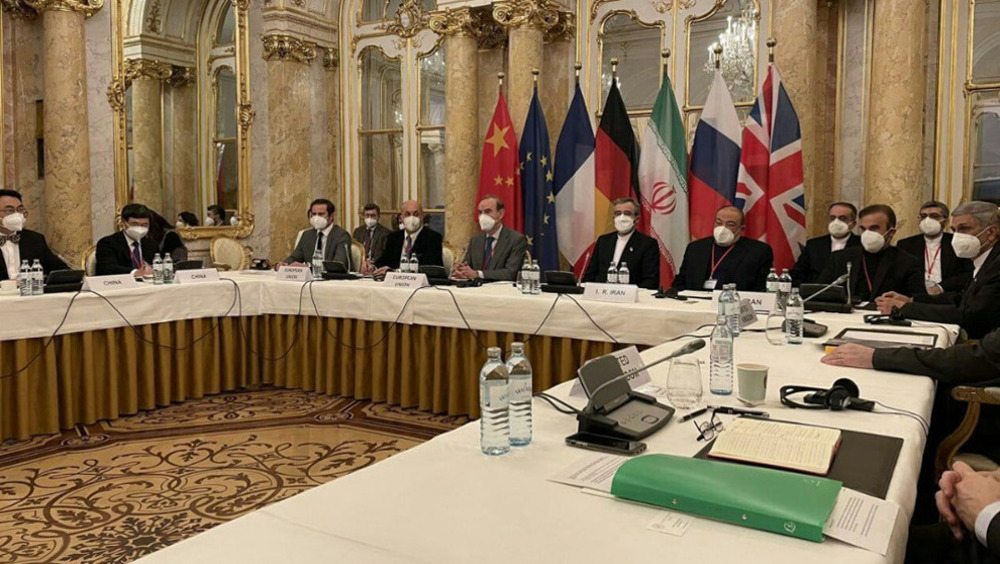
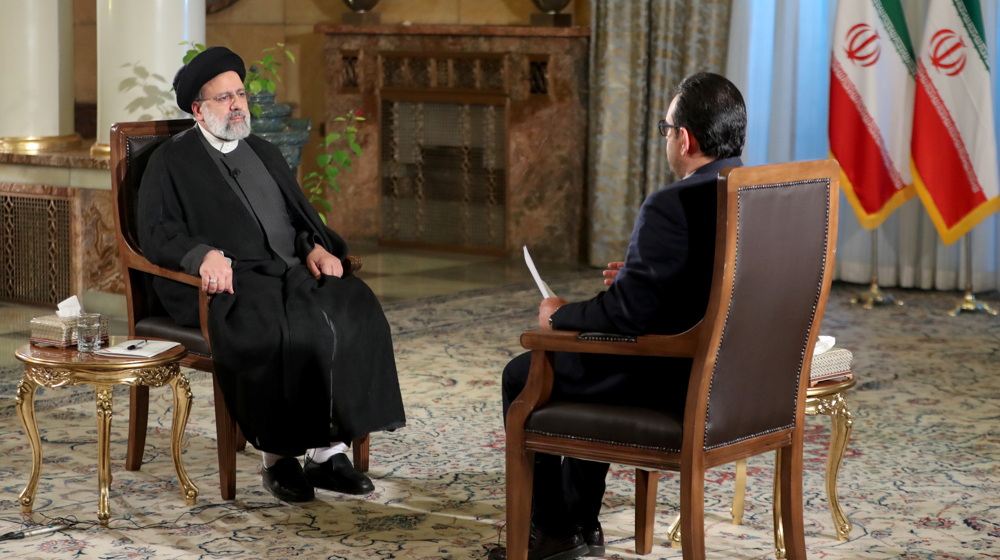
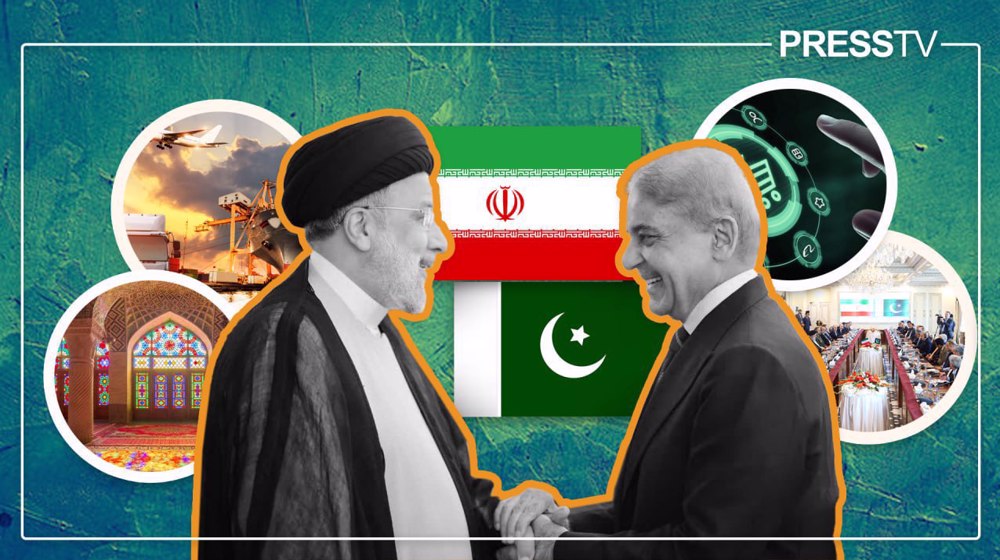
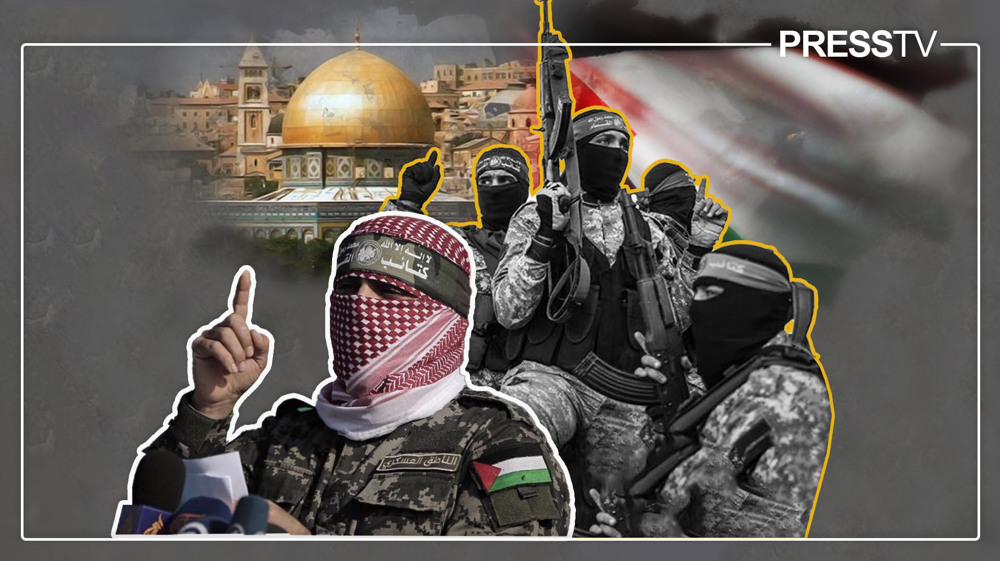
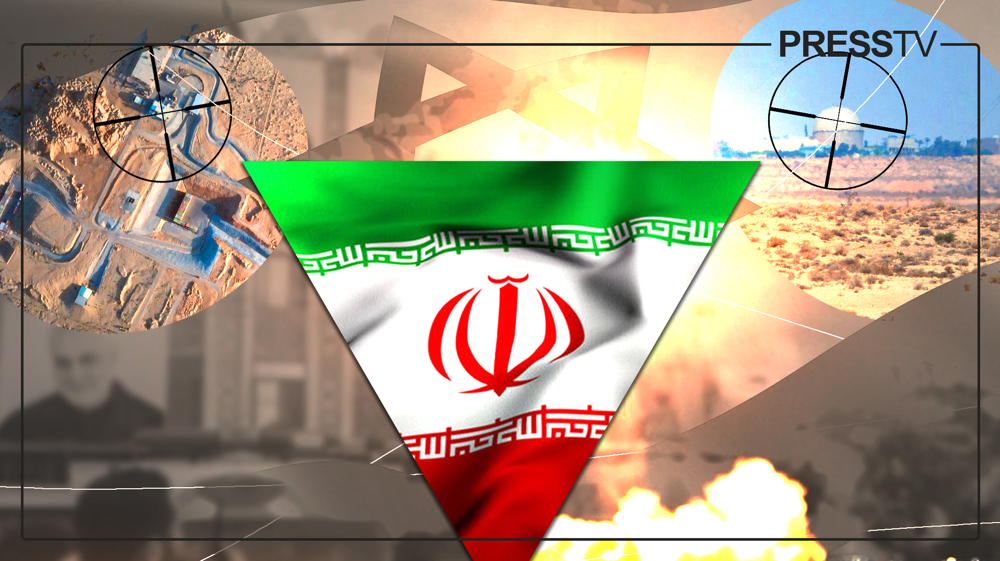




 This makes it easy to access the Press TV website
This makes it easy to access the Press TV website